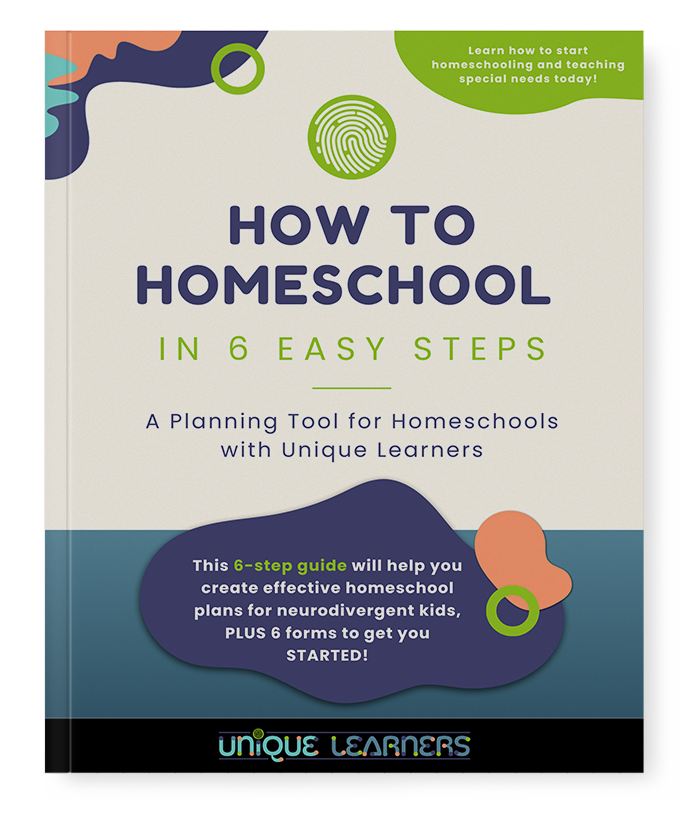Whether you are a new homeschool mom or have been homeschooling for a few years, all of us face days when our kids don’t want to do school. Those day can pass without much concern. However, some of us are homeschooling at least one child with a special learning need with or without a diagnosis. Learning how to get compliance and cooperation can be a real nightmare! But, not as much with Behavior Management Strategies.

Every child communicates through behavior. The school setting may be the issue, but there are plenty of other factors to consider before changing schools or curriculum.
The first key to behavior management strategies is to look at what is really behind the refusals, meltdowns, or power struggles.
Here are some questions to think about for evaluating behaviors:
- Does my child already have a diagnosis that involves learning or behavior, such as dyslexia, autism, other learning disabilities, anxiety, ADHD, or ODD? You may want some assistance in devising a specific behavior plan based on your child’s particular needs.
- Is my child behind in any of the five domains of development?
- Physical – gross motor, fine motor, primitive reflexes, growth
- Cognitive – reading, writing, math, executive functions, auditory processing, visual processing, or memory
- Emotional – emotional regulation
- Social – friendships with others of any age
- Moral/Spiritual – knowing right from wrong
- Did we just have some type of major life transition? Changing school settings, even to homeschool is a major transition for a kid or teen. This is why “deschooling” is sometimes a helpful transition tool.
- Does my child need more structure and support or less structure and freedom to work independently?
- Has my child been in a school system that heavily emphasizes grade levels, utilizes lots of worksheets where everything is graded, or had a negative system of behavior management?
If you said yes, to any of the questions, you can expect the transition to homeschooling to be a challenge.
Here are some Behavior Management Strategies to consider:
Set Clear Expectations:
Clearly communicate rules and expectations, using simple and concise language. Ensure that the child understands what is expected of them.
Consistency and Structure:

Establish a consistent daily routine to provide a structured environment. Consistency helps children understand boundaries and expectations. Many parents who have children with challenging behaviors think that using unschooling and less structure to be a logical approach. Unfortunately, children with ADHD, ODD, and other issues involving executive functions often do not easily pick up on social cues, boundaries, or organizational skills that allow to develop effective work habits or sustain friendships. Structure is not discipline or punishment, it is simply establishing the scaffolded support that will help a kids or teen to be successful.
Provide Choices:
Offer the child limited choices to promote a sense of control. This can reduce power struggles and increase cooperation. Make sure both choices are ones you approve of and can live with.

Positive Reinforcement:
Acknowledge effort and work completion with specific praise and rewards that promote relationship. Possible rewards could be playing a board game or time spent outdoors with you, going out on a hike or special field trip, or a once a month family time eating out.

Use Consistent Consequences:
Clearly define consequences for negative behavior and consistently apply them. Consequences should be logical and related to the behavior. Focus on teaching appropriate behavior rather than yelling or punishing as a routine practice. I have found the videos and book by Nicholeen Peck about training self-government to be especially helpful for our son with multiple special needs.
Active Listening:
Practice active listening and empathy to understand the underlying emotions driving the child’s behavior. Validating their feelings can help de-escalate conflicts and build trust. Don’t try to reason with a child who is in the middle of a melt-down.
Teach Problem-Solving Skills:
Teach the child alternative techniques for expressing frustration or anger. Help them develop problem-solving skills, conflict resolution strategies, and coping mechanisms. Again, this teaching should not be done through reasoning DURING a meltdown. You may even want to integrate social skills or character training into your regular routine so that you are explicitly addressing the social and emotional learning that your child needs.
Seek Support in behavior management strategies:
Engage the support of a mental health professional or counselor who can provide guidance and assistance in managing difficult behaviors. They can offer additional strategies tailored to your child’s specific needs.
Remember, each child is unique, so it may take time to find the most effective behavior management strategies that work with your child. Be patient, consistent, and celebrate small victories along the way.
We are happy to help you in making your homeschool a joyful experience and to set up a plan to help your unique learner be more cooperative and productive! Sign up to receive our weekly emails and announcements for when our membership will be officially launched!
Don’t Forget…
Check out our other blog articles that help homeschools of kids with special needs to know effective teaching strategies for phonics, spelling, reading, writing, and math!
Also, join our Facebook group, “Homeschool Help for Special Needs.” It is a place for homeschool moms to ask questions about homeschooling a child with special learning needs, share teaching and curriculum ideas that have worked (and those that bombed), and be real about the unique challenges of homeschooling with special needs. If you want to join us, be sure to answer the member questions to help us keep this private group secure. Click HERE to join now!

